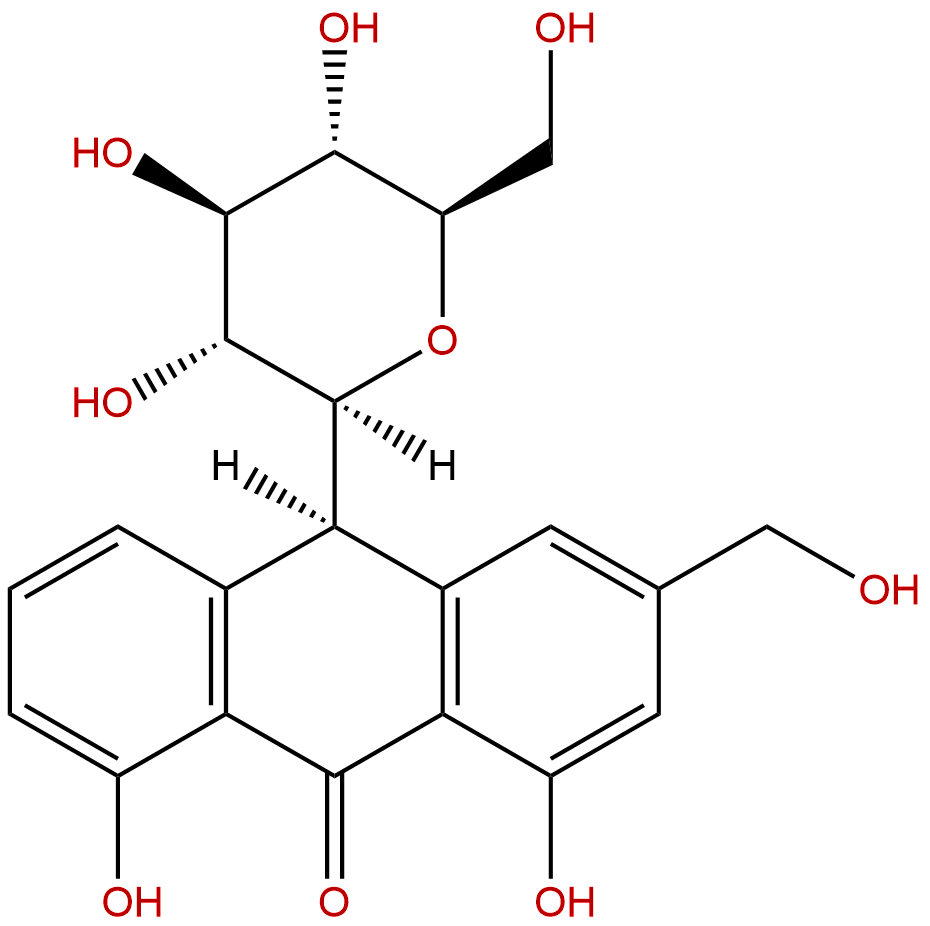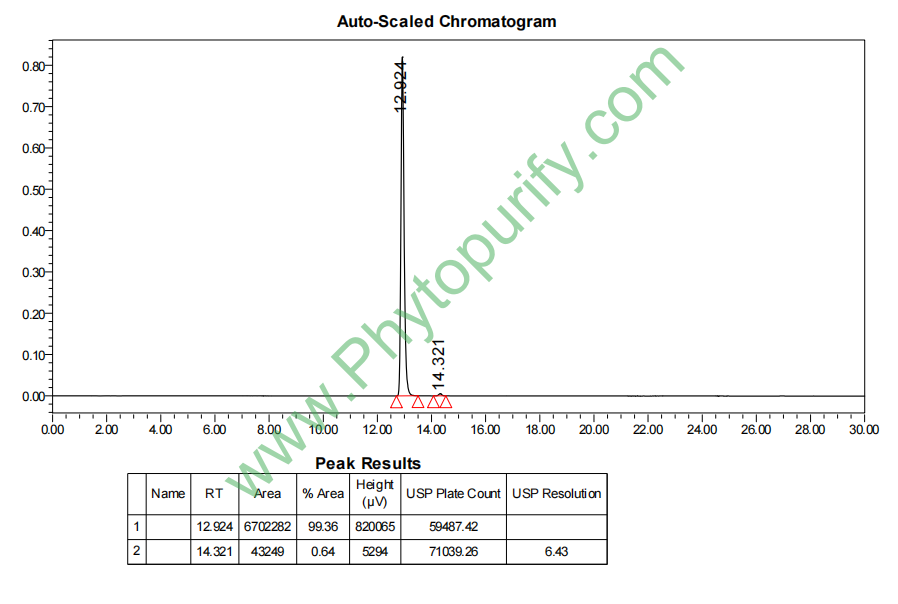
Aloin BCAS No.:28371-16-6
|
||||||||||
 |
|
|
||||||||

| Catalogue No.: | BP0150 |
| Formula: | C21H22O9 |
| Mol Weight: | 418.398 |
Product name: Aloin B
Synonym name: Isobarbaloin; β-Barbaloin
Catalogue No.: BP0150
Cas No.: 28371-16-6
Formula: C21H22O9
Mol Weight: 418.398
Botanical Source: Aloe
Physical Description:
Type of Compound: Anthraquinones
Purity: 95%~99%
Analysis Method: HPLC-DAD or/and HPLC-ELSD
Identification Method: Mass, NMR
Packing: Brown vial or HDPE plastic bottle
Storage: Store in a well closed container, protected from air and light. Put into refrigerate or freeze for long term storage.
Whenever possible, you should prepare and use solutions on the same day. However, if you need to make up stock solutions in advance, we recommend that you store the solution as aliquots in tightly sealed vials at -20℃. Generally, these will be useable for up to two weeks.
The product could be supplied from milligrams to grams
Inquire for bulk scale.
Description:
Dietary supplementation of aloe components (aloin, aloesin and aloe-gel) can ameliorate intestinal inflammatory responses in a 3% dextran sulfate sodium (DSS)-induced ulcerative colitis rat model, in particular, aloesin is the most potent inhibitor. The extract of A. vera and its active ingredient aloin cause melanin aggregation leading to skin lightening via alpha adrenergic receptor stimulation.
References:
J AOAC Int. 2014 Sep-Oct;97(5):1323-8.
Determination of Aloin A and Aloin B in Aloe vera Raw Materials and Finished Products by High-Performance Liquid Chromatography: Single-Laboratory Validation.
A single-laboratory validation (SLV) was conducted on an HPLC method for the detection and quantification of aloin A and Aloin B in Aloe vera raw materials and finished products.
METHODS AND RESULTS:
An extraction procedure using sonication with an acidified solvent was used for solid test materials while liquid test materials only required dilution, if necessary, prior to filtration and analysis. Separation was achieved using a fused core C18 column in 18 min under isocratic elution conditions allowing for a single analyte (aloin A) calibration curve to quantify both aloins. Adequate chromatographic resolution (Rs ≥1) was achieved for aloin A and Aloin B. The calibration curves for aloin A exhibited coefficients of determination (r(2)) of ≥99.9% over the linear range of 0.3-50 μg/mL.
CONCLUSIONS:
The LOD values were 0.092 and 0.087 μg/mL, and LOQ 0.23 and 0.21 μg/mL for aloin A and Aloin B, respectively.
HPLC of Aloin B
